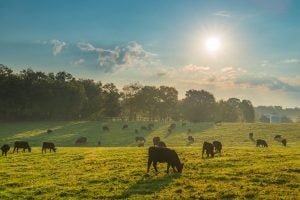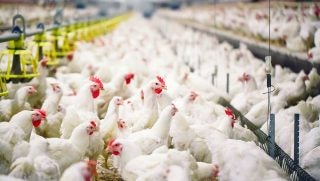Two companies that have had some pretty rocky relationships with the agricultural industry the past couple of years have made a move to supposedly help cattle ranchers address climate change — something that livestock producers have already been doing very well with prior to this announcement. Burger King and Cargill said they are partnering with the National Fish and Wildlife Foundation to promote ranchers’ regenerative agriculture practices in Colorado, Kansas, Nebraska, New Mexico, Oklahoma, and Texas.
This five-year initiative with up to $5 million in funding is expected to generate 1:1 matching contributions from NFWF, creating a total on-the-ground impact of up to $10 million.
While it’s great to see companies put money toward farmers in whatever way they choose, it will also be of little surprise if some in the agricultural community bide their time and try to gauge the sincerity of Burger King’s and Cargill’s actions.
Why is that? Well, we all should remember that Burger King ad from 2020, which received major backlash after attacking the agriculture industry and “cow farts” for being a major contributor to greenhouse gases (even though the evidence does not support their claims). After the ad, which was part of BK’s#CowsMenu campaign, was put on blast by those in agriculture, Burger King tried to mend fences with ranchers, yet in many respects, they still found themselves fumbling through apologies and continuing to make their outreach worse.

Yet Burger King isn’t alone here, as Cargill has had some prior mishaps with the agriculture industry and drawn the ire of growers. Most notably was back in 2017 when Cargill sought ingredient certification thought a partnership with the Non-GMO Project, one of the least-respected organizations in agriculture and one that preys on consumers’ fears about seed technologies. One blogger, The Farmer’s Daughter, explained that, “It is pretty clear that the aim of the [Non-GMO Project] is to end the use of biotechnology entirely, which we have seen from many in the pro-labeling movement. First you stigmatize it, then you label it, then you stop using it.” She called out the Cargill/Non-GMO Project partnership and even received national attention for her efforts.
Since then, however, Cargill has done a lot to make amends with farmers and ranchers, including campaigns to send milk to Feeding America and help livestock producers with their sustainability efforts. That more recent track record gives some hope to the genuineness of the Burger King/Cargill partnership.
According to a news statement, this partnership will bring financial and technical resources to ranching organizations in the Southern Great Plains to improve grassland management and reduce greenhouse gas emissions.
The Southern Great Plains host a unique set of wildlife species that are specifically adapted to this grassland ecosystem, and many of these species are year-round residents that live on or migrate through ranching lands. NFWF awarded three grants made possible to ranchers in Kansas, New Mexico, and Texas to support their efforts to plan and implement voluntary grassland management practices with consideration to the unique needs of their land.
“We, along with our research partner Working Lands Conservation, are thrilled by this amazing opportunity to support livestock producers in stewarding the Southern Great Plains,” said Lesli Allison, Western Landowners Alliance executive director. “This project highlights the key role that ranchers and grazing animals play in maintaining grassland ecosystems, feeding our nation and sustaining the economic vitality of rural communities.”
Rancher and project partner Bret Riley added, “Building good prairie chicken habitat builds good cow habitat. These are win-win management strategies that we are proud to work with agency and conservation partners on.”

The sustainable grazing practices implemented by ranchers over the next five years will have far-reaching impact with the potential to sequester up to 360,000 metric tons of carbon dioxide equivalent (CO₂e) per year, the equivalent of removing 904 million miles driven or the energy to power 43,000 U.S. homes for one year.
“The implementation of voluntary conservation measures supported by the Southern Plains Grassland Program will focus on scaling grazing practices that conserve and restore grasslands and wildlife species through innovative and localized approaches,” said Jeff Trandahl, executive director and CEO of NFWF. “These projects will make grasslands more resilient to changing conditions, and we look forward to expanding this work by connecting conservation experts with ranchers interested in making a real change.”


